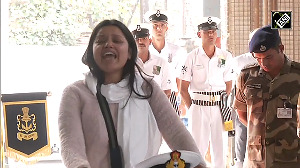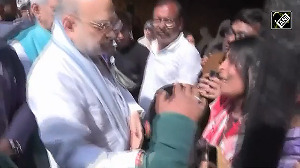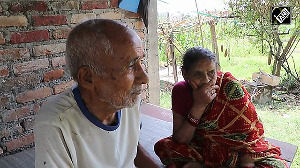The Centre proposes to usher in the much delayed value added tax regime from April, 2004. It expects that the necessary legislations will be passed, allowing the states to levy service tax to compensate for losses they will incur when central sales tax is phased out.
| |||||||||||
He also said in some states, the loss of sales tax due to improper disclosure of turnover aggregates to as much as 50 per cent.
Dr Chandra was delivering the special address at the inauguration of the two-day Logistics Summit, organised by the Confederation of Indian Industry, in Chennai.
"The introduction of VAT will improve the revenue of the states and will help in pulling the states out of debt trap," he said. Dr Chandra also suggested that initially there should at least be a partial introduction of VAT in India.
"Fifty per cent of the states can introduce VAT, like it is done in Canada. A complete introduction of VAT, as in Brazil, however, would be an ideal scenario," he said.
The introduction of VAT would also see the removal of the entry tax, or the special additional tax, levied by states. The Centre has proposed to cut the central sales tax from four per cent to two per cent, and expects to phase it out completely over the next three years.
The Centre, he said, had agreed to compensate the loss due to the cut in the CST to the states to the extent of 100 per cent in the first year and 75 per cent in the second year.
"However, some of the states are asking for 100 per cent compensation in the second year too," he said. "The introduction of service tax needs the ratification of at least 15 states in the country. So far, nine states have ratified it.
The Cabinet on its own cannot ratify it -- the agreement of the states is necessary to pass the legislations to introduce service tax." The strongest opposition to the introduction of VAT is coming from the trade community.
"The fear of VAT is due to the disclosure requirements the system would demand. Traders are afraid of their exposure to income tax once the real turnover is disclosed for VAT purpose," Dr Chandra said.
Allaying the common fear that the introduction of VAT would push prices up, Dr Chandra said, "The notion that prices of goods will go up due to VAT is rubbish. I cannot say that the prices will fall, but the implementation will definitely not push prices up."
To reinforce his point, Dr Chandra cited a recent study by the Karnataka government, covering 80 items, which showed that prices of goods would not go up due to the introduction of VAT.
"The increase in price, if any, would only be due to the system becoming more transparent and the links in the system that evaded tax earlier would now be covered. How can one call this an increase in price?" he asked.
"Not a single state is opposing the VAT. The four states that will go to the polls in December, have requested the Centre to postpone the introduction. Haryana has already introduced VAT and has not reported any increase in prices," he said.
Dr Chandra said the VAT system, in the long run, must evolve into one were all taxes will be included under it, including the excise duty. "There must be a single tax in this country," he said.





 © 2025
© 2025